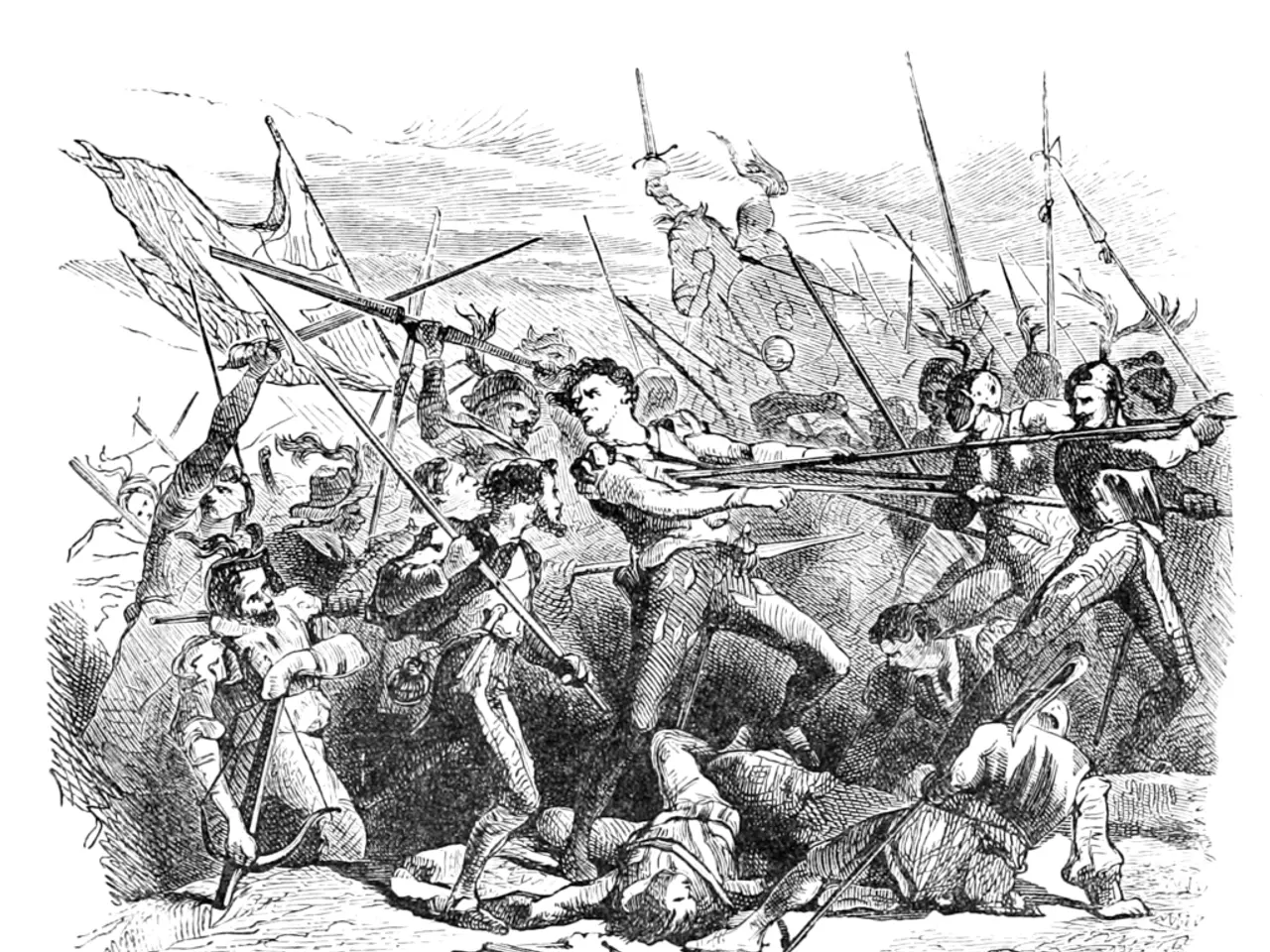Strife fuels true democracy: the case against unanimity
In the realm of political discourse, the terms "unity" and "for the country" are often used as rhetorical devices, according to political scientist Justus Seuferle. These phrases, he argues, serve to mask real conflicts and support those in power by promoting an illusory harmony.
Seuferle highlights two competing notions of "we" in political rhetoric. The right-wing national-ethnic "we," which assumes shared interests within a nation by ignoring internal social, cultural, and economic divisions, and the liberal "we," which claims universal inclusion but downplays power differences and conflicting interests among citizens. Both these conceptions of unity, he warns, obscure real inequalities and conflicts, encouraging citizens to repress their own interests to maintain an abstract idea of communal responsibility or national harmony.
This consolidation of power through the suppression of political dissent or opposition presents a simplified and unifying narrative that benefits those who govern while undermining democratic debate and recognition of diverse social realities. For instance, constitutional scholar Carl Schmitt once stated that those who say "humanity" are lying, implying that they fail to recognise conflicting interests and power imbalances.
Chantal Mouffe, a political theorist, argues that democracy requires managing conflicts as political rivalries, not friend-enemy perspectives. The noble intention of liberal universalism, as emphasised by Dahrendorf, can't overcome the structural power of the national interest. Democracy, he suggests, is a space for negotiating competing interests, with the common good being a collectively carried compromise.
However, the fear of conflict may ultimately indicate a fear of the republic, as pointed out by Seuferle. The nationalist "we" turns history into nature and transforms politics into racial hatred, while the liberal "we," appearing to be the cooperative and inclusive alternative, ignores differences of power and interest, enforcing a false sense of unity and becoming national by accident.
It is crucial, Seuferle emphasises, to separate essence from existence to avoid identity-driven tribalism. We are not biologically different but structurally situated. The term "Unity" is often used as a call for false contentment, asking people to set aside conflict and ignore contradictions.
In conclusion, it is essential to critically examine the use of the terms "unity" and "for the country" in political discourse. These phrases, while seemingly noble, can obscure real conflicts and power imbalances, undermining democratic debate and the recognition of diverse social realities. Instead, we should strive for a democratic space that acknowledges and negotiates competing interests, fostering a healthy and vibrant political discourse.
Policy-and-legislation decisions often mirror the underlying politics, as they are shaped by the dominant narrative that prioritizes national harmony over addressing actual conflicts and inequalities.
General-news reports should critically evaluate the use of phrases like "unity" and "for the country" in political discourse, as they may disguise power imbalances and hinder a genuine democratic debate.






